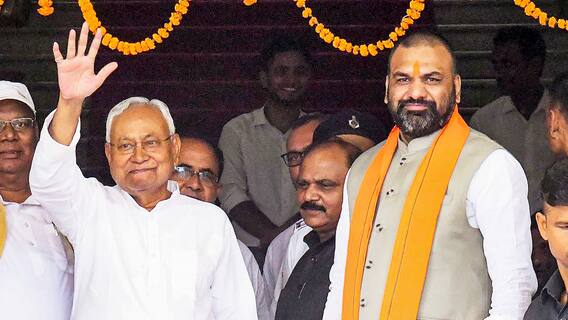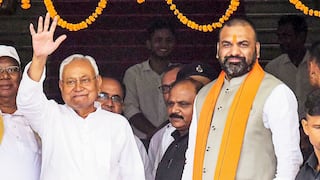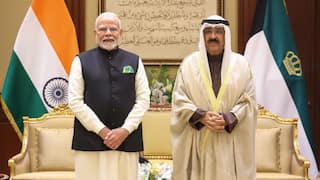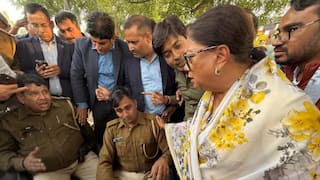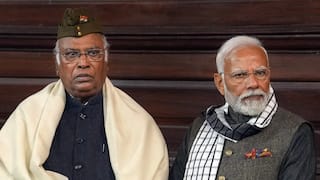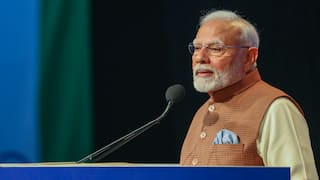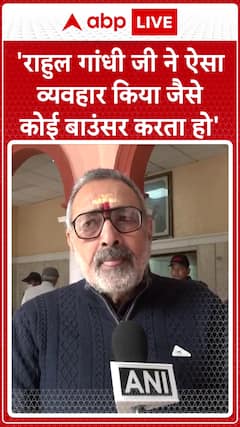Pakistan Caught Up In Afghanistan Conflict, Facing Terrible Threat Of Terrorism: US
A top Biden administration official stated that Pakistani areas near Afghanistan border, particularly Khyber Pakhtunkhwa and Balochistan have witnessed increased terrorist activities.

Pakistan is facing a terrible threat of terrorism as areas along its border with Afghanistan have witnessed a multi-fold increase in terrorist activities, a top Biden Administration official has said.
During a Congressional hearing on Pakistani elections on Wednesday, Assistant Secretary of State for South and Central Asia Donald Lu told members of the House Foreign Affairs Committee that Afghanistan has witnessed conflict for 40 years and Pakistan has been caught up in it.
"The end of the war in Afghanistan provides us all an opportunity, an opportunity to have a relationship with Pakistan on its own terms and we are committed to doing that," Lu said.
"One of the major goals that we have with Pakistan now is to support the Pakistani people as they face this terrible threat of terrorism. Many of the members have discussed this, but this is a country where the people have suffered under the threat of terrorism in a way that I think no one on the planet has had to suffer," he said.
The attacks, particularly in the provinces of Khyber Pakhtunkhwa and Balochistan over the past three years have grown exponentially. Attacks continue to be launched from Afghan territory, Lu said.
"And you saw a major attack on Saturday in which seven policemen were killed by the TTP, the Pakistani Taliban. We call on the Afghan Taliban to ensure that its territory is not used as a launching pad for terrorist groups," he said.
A Lieutenant Colonel and a Captain along with five soldiers were killed when six terrorists launched multiple suicide attacks on a security check post in the restive tribal district of North Waziristan bordering Afghanistan on Saturday. All the six terrorists who attacked the check post in the Mir Ali area were shot dead, the Pakistani army had said.
In response to the attack, Pakistan on Monday carried out airstrikes on the banned Tehrik-i-Taliban Pakistan (TTP) affiliated militants in Taliban-ruled Afghanistan.
At least eight civilians, including three children, were killed in the airstrikes, the Afghan Taliban said and summoned the charge d'affaires of Pakistan’s embassy in Kabul to lodge a strong protest.
Lu further said economic stability for Pakistan is another area of focus.
"For Pakistan to deal with its social terrorism and political issues, it needs a functioning economy. We want private sector-led growth which benefits the Pakistani people, not growth, which fuels profits by lender countries like the PRC (People's Republic of China)," he said.
The US, he said, has a long partnership with Pakistan. "We want to see that grow. We want to see business-to-business relations improve. We want to see the ease of Pakistani Americans to travel to Pakistan and Pakistanis to travel to the United States. Those ties are critical," he noted.
Responding to a question, Lu refuted allegations that the US government conspired to oust the Imran Khan government.
"I want to be very clear on this point. These allegations, this conspiracy theory is a lie. It is a complete falsehood. I have reviewed the press reporting related to this what's called the cipher in Pakistan, the alleged leaked diplomatic cable from the embassy here. It is not accurate. At no point does it accuse the United States government or me personally of taking steps against Imran Khan," he said.
"We respect the sovereignty of Pakistan. We respect the principle that Pakistani people should be the only ones choosing their own leaders through a democratic process," he said.
Lu expressed concern over some aspects of the recently held elections.
"First, there were attacks against police, politicians and political gatherings by terrorist groups. Second, many journalists, particularly female journalists, were harassed and abused by party supporters. And third, several political leaders were disadvantaged by the inability to register specific candidates and political parties.
"On the day of elections, an internationally respected local election monitoring organisation said they were barred from observing vote tabulation in more than half of the constituencies across the country. And despite a high court order not to interrupt internet service on election day, authorities shut down mobile data services, the principal means by which Pakistanis access social media and messaging apps," he said.
There were positive elements to this election as well, Lu said, adding that despite the threat of violence, over 60 million Pakistanis, including over 21 million women, voted.
"Pakistani voters had a choice. A range of political parties won seats in the national and provincial assemblies. Three different political parties now lead Pakistan's four provinces. More than 5,000 independent election observers were in the field. Their organisation's conclusion was that the conduct of the election was largely competitive and orderly, while noting some irregularities in the compilation of results," he said.
(This story is published as part of the auto-generated syndicate wire feed. Apart from the headline, no editing has been done in the copy by ABP Live.)
Trending News
Top Headlines






